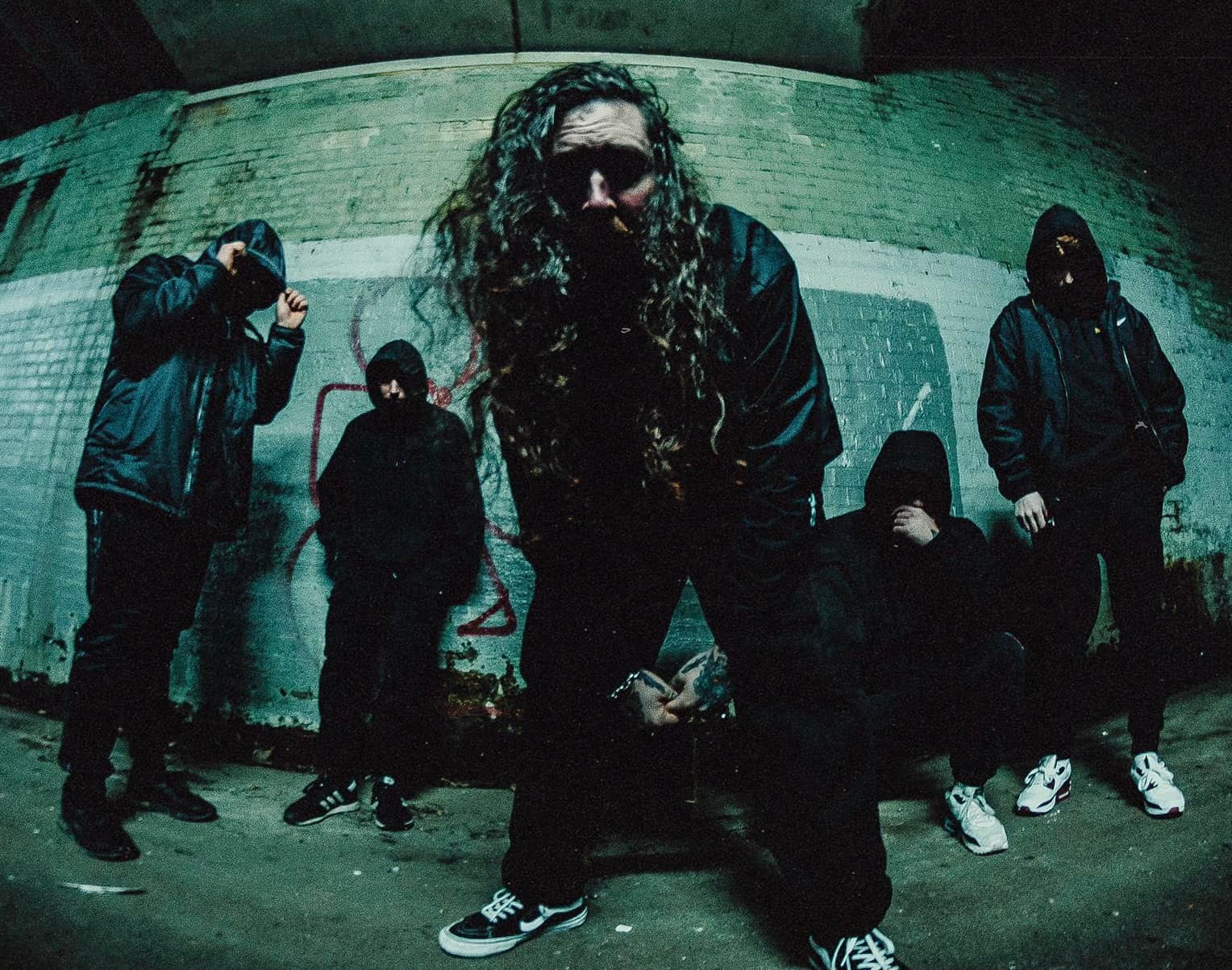Still fresh off the September 2022 release of their album “Videogame”, TALCO, the first European band to take part in all the Punk In Drublic tour in 2022, along with NOFX, Pennywise, Ignite and others, joins us for a special insightful track by track rundown of each and every California and ska infused track!
TALCO is a band that knows how to bring its size and live energy to the records as well, while at the same time managing to translate the value of studio production into the live experience. From this approach, which has now become a hallmark of Talco, comes “Videogame.” 15 tracks of punk-rock influenced by the California sound, with horns driving the sing-a-long.
“Initially, the project was not conceived as part of a trilogy, but the pandemic that postponed its release leading to the release of “Locktown,” turned “Videogame” into the prequel to a true introspective journey about the mind and the concept of time that – in contrast to the static nature of the acoustic record – here suffocates the individual with its frenzy.” – comments the band.
“It is precisely within this chaos that the freak has been wandering for years in search of a lost serenity until the advent of a storm that, as described on “Locktown,” suddenly stopped time, restoring his the ability to manage life as he pleases, choosing his own pace.
The musical style is outlined as always in Talco‘s characteristic traits, but in a much more powerful sound than on previous albums, influenced by Californian punk-rock.
It is a simple story that, revolving around the concept of escape from fear and anguish, deals in parallel with introspective and committed reflections, in a metaphorical plot that starts from the dream of an awakening inside a video game.”
Speaking about the Punk in Drublic tour, we must mention the upcoming final tour from NOFX! The farewell trek will feature 40 cities, 40 shows, 40 songs and the first show will take place in Austin, TX for a two-day camping event with: Pennywise, Circle Jerks, Face to Face, Riverboat Gamblers, Codefendents, Get Dead, Bad Cop/Bad Cop, The Bombpops, PEARS, and Piñata Protest. Additional bands to be announced soon.
The album “Videogame,” recorded by Marc Boria at Labedoble Estudi and mixed and mastered by Jason Livermore at Blasting Room Studio, is released by HFMN, Long Beach Recordings and Cargo.
Words by TALCO singer Dema:
With the end of 2019, after the celebration of the 15th anniversary of Talco, a new period seems to begin for the band, starting with an autobiographical album on anxiety and the difficulty of living after many years in a world that I love, like that of music, from which I would have liked to escape.
It’s a story that does not end exclusively within a single album, but over a wider period of time and record releases.
“Videogame“, released in autumn 2022, would seem, for chronological reasons of release, the epilogue of a post-pandemic reflection, but in reality the lockdown period of 2020 and 2021 had only postponed its release by a few years. It is actually the first chapter of a story that does not yet have its epilogue. The autobiographical character of the “freak”, who explicitly appears in the acoustic album “LockTown”, is the sleeping protagonist, or presumed protagonist of “Videogame“.
The frenzy of modern life – characterize chasing goals and ambitions to which we have been educated more or less unknowingly, in an obscene way, by the contemporary society of the spectacle – has suffocated the development and deep search for oneself in the individual, distorting both his natural path, and the consequent contribution to a collective culture that needs continuous evolution and change, but which is increasingly stagnating in empty anachronisms, superficial struggles, exhibitionism pro-forma on social media, and sterile slogans.
Here the story begins. The protagonist awakens in the dreamlike context of a frenetic videogame, in which he feels chased by ghosts and by the urgency to drive away his fears, his melancholy, and his resentments, hoping of reaching a pre-established goal that takes him out of this whirlwind of emotions negative (VIDEOGAME).
The protagonist of the escape is a sort of freak, who dedicated his whole life to a creative imagination of which he feels a slave, not reciprocated by the love towards her, and trapped by a crew of creativity puppeteers that move the ranks and force him to continue writing and telling stories, doping with a engine, a boat that was happy and grateful to sail by rowing (VIA).
It is not an easy game to win, the escape unfortunately has to pass through some dangerous level: few lives to exploit, false images, and unpleasant thoughts, that brings the freak even outside of one’s own selfish and individual suffering, which makes him ask why he feels so on the run, betrayed by a muse, who leaves him alone with this negative anguish.
On the horizon of the escape, the protagonist comes into a “paradise” which turns out to be only a mental hallucination (PARADISE CREW). It is a mirage tragically similar to the times we are living in, in which one seeks relief for one’s selfish pseudo-anguishes, in false oases made of deafening selfishness, ignorant provincialism, squalid impulsive “gut” thoughts, which generate contempt for one’s neighbor , in a race for ephemeral well-being, touted by upstarts of modern politics, transformed into a painful little theater of populism (PARADISE CREW).
The late escape makes our protagonist fall off the sea, in a level of the game in which salvation can only take place by reaching the river bank. But having reached that very point, bumping into a wall, he discovers a devastating reality: the wall is the screen of the game, played by himself, having fallen asleep.
The mantra “put yourself in the shoes of others” in today’s reality reaches sadly unattainable peaks, in the utopia of understanding people’s suffering without experiencing it firsthand which seems to no longer find space in the individual: MURO DI PLASTICA, tries to talk about this, a dream within a dream where the protagonist finds himself the victim of his own game, without the possibility of reawakening his mind: this criticism of the lack of human empathy draws a parallel between the indifferent selfishness of the modern “sovereignism” towards those who seek salvation by emigrating towards new hopes, and those who, at home, are unable to even understand the difficulties of others, trying to underline how even in the most intimate and personal moments we are not capable of feeling sensitivity for someone who it’s not about ourselves.
Losing another life in the game, all that remains is to try to escape towards the finish line and awaken the dormant self: the freak enters a level that seems to represents a sweet and known lifeline. But this opportunity materializes in a locomotive that turns out to be yet another failure: DESCARRILA represents, in the references to “La Locomotiva” by Francesco Guccini, as a lost opportunity to change the reality by movements, a constant historical dream of renewal thwarted by the contemporary selfishness of a minority, which with prevarication and presumption, has arrogantly assumed the role of driver of a train, which derails at the very moment in which the will of the few to control its direction definitively destroys a dream. It is a reference to the world of antagonism 20 years after the G8 experience, and a fundamental moment in history: having wanted to firmly believe in an ideal, represented by the train, but within a now stagnant known and arrogantly made the bearer of superficiality, rhetoric and ideology of dreams from the outside, makes the freak lose all faith in his dream who only inevitably falls towards the last life of the game (FRENETICA).
Suddenly the sleeping guy is attracted in sleep by a warning song of his own mind (PSICOLABIRINTO), while the freak inexplicably looms in a last level of the video game, even though he has never won any challenge. He finds himself inside a labyrinth reminiscent of Pacman, fleeing fear itself, in front of that goal that he had longed for.
There is only one life available, everything seems within reach (GAME OVER). The freak starts running, fear presses him and is about to engulf him until an unexpected turn of events: looking back, he understands that nothing is chasing him and that fear is only an invention of his mind and does not exist. We are often the victim of “infamous mentors”, sometimes from our own minds, sometimes from those who instill fear in us through propaganda making us poor, not very empathetic and racist, in a fear that does not exist.
Thanks to this final awareness, the last life is not wasted, because the real goal was to realize that exiting the game, indulging in a useless escape, would have sealed its defeat (CONTINUE).
The protagonist awakens, remembering his dream as if he were reliving it over and over and treasuring what he has learned from this dream experience.
Just the reconciliation with himself and his world makes him come back to his garage, from which everything always begins and ends: realizing that he has experienced a fear that did not exist, and he rediscovers the love for what he does in its most magical and intimate side, right inside that garage, while he writes his own stories in the shadow of a beloved invisible silence, with a horizon behind him and a new one to draw (GARAGE JUKEBOX).
And he sets off again for another journey, with a new awareness given by the experience of the lived dream, which infuses him with the courage to say what he thinks without following the judgments of others, avoiding the path of easy consensus, considering it false and not very comforting, in the rejection of that superficial rhetoric that is suffocating a world of which he feels he belongs, but which too many are exploiting with empty and stagnant slogans (LA VENUTA DI BANALITA‘)










